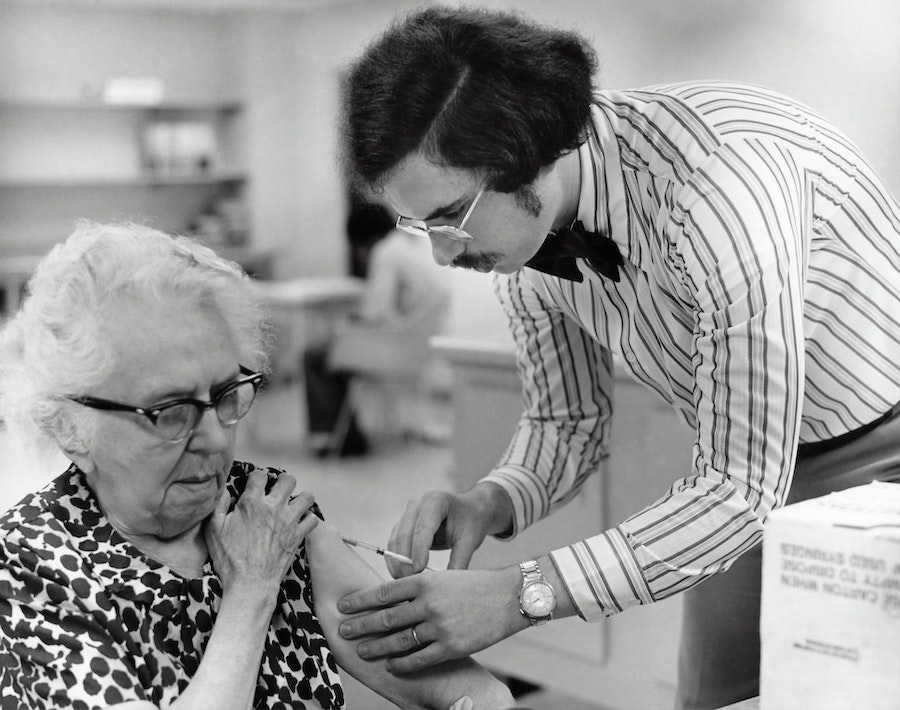Diabetes confers an increased risk of infections. Although people of all ages are prone to infectious diseases like pneumonia and influenza, extremes of age and certain underlying medical conditions such as diabetes, asthma, Chronic Bronchitis and heart disease aggravate the risk.
The increased susceptibility of diabetes subjects to pneumonia is mainly due to high blood sugars, poor long-term diabetes control, longer duration of diabetes, decreased immunity & impaired lung functions in the elderly.

Longer duration of diabetes and poor sugar control together cause a 25–75% increase in the risk of pneumonia-related hospitalizations in diabetes subjects emphasizing the increased importance of immunization in diabetes subjects.
Safe and effective vaccines are available that can greatly reduce the risk of serious complications from these diseases.
In a case-control series, influenza vaccine was shown to reduce diabetes-related hospital admission by as much as 79% during flu epidemics. There is sufficient evidence to support that people with diabetes have appropriate serologic and clinical responses to these vaccinations.
ADA (American Diabetes Association) & CDC (Centre for Disease Control and Prevention) Recommendations:
- Annually provide an influenza vaccine to all diabetic patients ≥6 months of age.
- Administer pneumococcal polysaccharide vaccine to all diabetic patients ≥2 years of age. A one-time revaccination is recommended for individuals >64 years of age. Other indications for repeat vaccination include nephrotic syndrome, chronic renal disease, and other immunocompromised states, such as after transplantation.
- Hepatitis B vaccination for all unvaccinated adults with diabetes younger than 60 years as soon as feasible after diagnosis.
Hepatitis B vaccination may be administered at the discretion of the treating clinician to unvaccinated adults with diabetes who are aged ≥ 60 years. This may be based on the likelihood of acquiring the infection at chronic care facilities (blood glucose monitoring, insulin injections).
Patients with Chronic Kidney Disease including those on hemodialysis should also be vaccinated.
Hepatitis B vaccination usually consists of three doses of vaccine administered intramuscularly at 0, 1 and 6 month.
Recommended Vaccines for Diabetes Patients
- Pneumococcal (Polysaccharide) single dose
- Influenza one dose annually
- Hepatitis B Three Doses
When You Should Not Get Vaccinated
- Hypersensitivity to the active substances or to any of the components of the vaccine.
- History of chicken egg allergy particularly when considering flu shot.
- In addition, immunization should be postponed in patients with febrile illness or any acute infection.